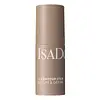What's inside
What's inside
 Key Ingredients
Key Ingredients

 Benefits
Benefits

 Concerns
Concerns

 Ingredients Side-by-side
Ingredients Side-by-side

Hydrogenated Polybutene
Polyhydroxystearic Acid
EmulsifyingRicinus Communis Seed Oil
MaskingHelianthus Annuus Seed Wax
Skin ConditioningDiisostearyl Malate
EmollientTriisostearyl Citrate
EmollientMicrocrystalline Wax
Emulsion StabilisingSilica
AbrasiveZea Mays Starch
AbsorbentJojoba Esters
EmollientButyrospermum Parkii Butter
Skin ConditioningOryza Sativa Bran Extract
Skin ConditioningMica
Cosmetic ColorantMangifera Indica Seed Butter
Skin ConditioningPrunus Avium Seed Oil
EmollientRosa Canina Seed Oil
EmollientCaprylyl Glycol
EmollientEthylhexylglycerin
Skin ConditioningCarthamus Tinctorius Seed Oil
MaskingHelianthus Annuus Extract
EmollientAcacia Decurrens Flower Wax
EmollientPolyglycerin-3
HumectantRosmarinus Officinalis Leaf Extract
AntimicrobialTocopherol
AntioxidantCamellia Sinensis Leaf Extract
AntimicrobialChamomilla Recutita Flower Extract
MaskingTocopheryl Acetate
AntioxidantCI 77891
Cosmetic ColorantIron Oxides
Hydrogenated Polybutene, Polyhydroxystearic Acid, Ricinus Communis Seed Oil, Helianthus Annuus Seed Wax, Diisostearyl Malate, Triisostearyl Citrate, Microcrystalline Wax, Silica, Zea Mays Starch, Jojoba Esters, Butyrospermum Parkii Butter, Oryza Sativa Bran Extract, Mica, Mangifera Indica Seed Butter, Prunus Avium Seed Oil, Rosa Canina Seed Oil, Caprylyl Glycol, Ethylhexylglycerin, Carthamus Tinctorius Seed Oil, Helianthus Annuus Extract, Acacia Decurrens Flower Wax, Polyglycerin-3, Rosmarinus Officinalis Leaf Extract, Tocopherol, Camellia Sinensis Leaf Extract, Chamomilla Recutita Flower Extract, Tocopheryl Acetate, CI 77891, Iron Oxides
Dicaprylyl Carbonate
EmollientEthylhexyl Palmitate
EmollientTitanium Dioxide
Cosmetic ColorantNeopentyl Glycol Diheptanoate
EmollientZinc Oxide
Cosmetic ColorantSynthetic Wax
AbrasiveSilica
AbrasiveHydrogenated Sunflower Seed Oil
Skin ConditioningGlyceryl Dibehenate
EmollientJojoba Esters
EmollientTribehenin
EmollientGlyceryl Behenate
EmollientSynthetic Fluorphlogopite
Lecithin
EmollientTocopherol
AntioxidantDisteardimonium Hectorite
StabilisingAscorbyl Palmitate
AntioxidantCitric Acid
BufferingCI 77492
Cosmetic ColorantCI 77891
Cosmetic ColorantCI 77491
Cosmetic ColorantCI 77499
Cosmetic ColorantDicaprylyl Carbonate, Ethylhexyl Palmitate, Titanium Dioxide, Neopentyl Glycol Diheptanoate, Zinc Oxide, Synthetic Wax, Silica, Hydrogenated Sunflower Seed Oil, Glyceryl Dibehenate, Jojoba Esters, Tribehenin, Glyceryl Behenate, Synthetic Fluorphlogopite, Lecithin, Tocopherol, Disteardimonium Hectorite, Ascorbyl Palmitate, Citric Acid, CI 77492, CI 77891, CI 77491, CI 77499
Ingredients Explained
These ingredients are found in both products.
Ingredients higher up in an ingredient list are typically present in a larger amount.
Ci 77891 is a white pigment from Titanium dioxide. It is naturally found in minerals such as rutile and ilmenite.
It's main function is to add a white color to cosmetics. It can also be mixed with other colors to create different shades.
Ci 77891 is commonly found in sunscreens due to its ability to block UV rays.
Learn more about CI 77891Jojoba Esters is a wax created from Jojoba oil. It is an emollient and film-forming ingredient. In bead form, it is an exfoliator.
This ingredient has high oxidative stability, meaning it doesn't break down when exposed to oxygen.
Its similarity to our skin's natural oils makes it a great emollient. Emollients help soften and soothe our skin by creating a barrier on top. This barrier helps trap moisture in, keeping skin hydrated.
It is created using either the hydrogenation or transesterification processes on jojoba oil.
Learn more about Jojoba EstersSilica, also known as silicon dioxide, is a naturally occurring mineral. It is used as a fine, spherical, and porous powder in cosmetics.
Though it has exfoliant properties, the function of silica varies depending on the product.
The unique structure of silica enhances the spreadability and adds smoothness, making it a great texture enhancer.
It is also used as an active carrier, emulsifier, and mattifier due to its ability to absorb excess oil.
In some products, tiny microneedles called spicules are made from silica or hydrolyzed sponge. When you rub them in, they lightly polish away dead skin layers and enhance the penetration of active ingredients.
Learn more about SilicaTocopherol (also known as Vitamin E) is a common antioxidant used to help protect the skin from free-radicals and strengthen the skin barrier. It's also fat soluble - this means our skin is great at absorbing it.
Vitamin E also helps keep your natural skin lipids healthy. Your lipid skin barrier naturally consists of lipids, ceramides, and fatty acids. Vitamin E offers extra protection for your skin’s lipid barrier, keeping your skin healthy and nourished.
Another benefit is a bit of UV protection. Vitamin E helps reduce the damage caused by UVB rays. (It should not replace your sunscreen). Combining it with Vitamin C can decrease sunburned cells and hyperpigmentation after UV exposure.
You might have noticed Vitamin E + C often paired together. This is because it is great at stabilizing Vitamin C. Using the two together helps increase the effectiveness of both ingredients.
There are often claims that Vitamin E can reduce/prevent scarring, but these claims haven't been confirmed by scientific research.
Learn more about Tocopherol